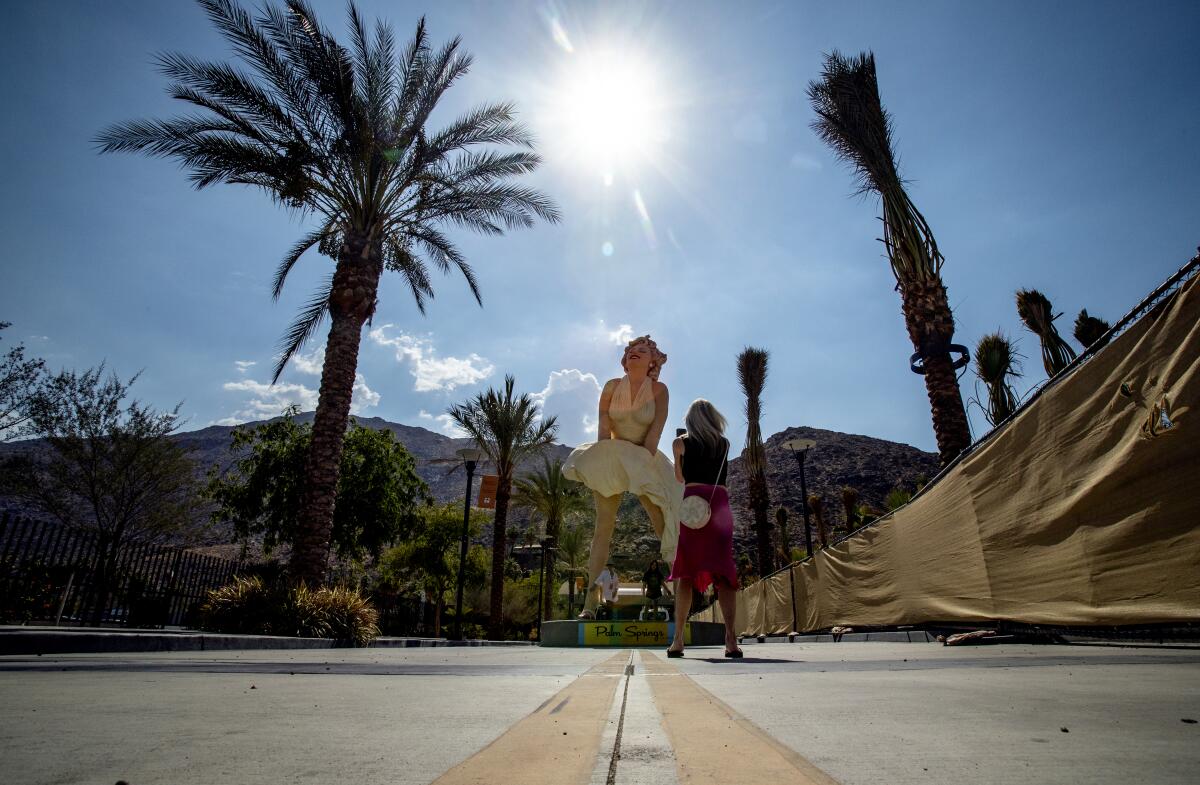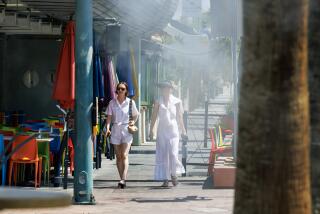Heat wave sets new high temperature records, strains power supply

- Share via
A heat wave across California set new record high temperatures Saturday in some locations — including 120 degrees in Palm Springs — and authorities urged people to conserve electricity as the extreme conditions continue to tax the state’s power grid.
State energy officials announced a Flex Alert, asking residents to conserve power and set air conditioners to 78 degrees or higher from 4 p.m. to 9 p.m. Saturday, due to wildfire threats. Temperatures kept rising throughout the afternoon, shattering records in inland and valley areas.
Palm Springs and Borrego, which hit 118 degrees, both broke previous records for July 10. Palmdale Regional Airport hit a new high for the day at 112 degrees, and the Lancaster Airport tied its record of 113 degrees, according to the National Weather Service.
In central California, the Paso Robles airport tied its previous 1961 record of 114 as of 3 p.m.
Responding to a growing wildfire in Oregon that is impacting transmission lines used to import energy to California, Gov. Gavin Newsom signed an order on Saturday to free up energy capacity. The order allows emergency use of auxiliary ship engines to relieve pressure on the state’s power grid, according to a statement from the governor’s office.
Death Valley was expected to reach record temperatures of 130 degrees Sunday, which equals the hottest temperature recorded on Earth in nearly a century. But that record came two days early on Friday afternoon.
Northern California saw scorching temperatures as well, with Redding reaching 114 degrees and downtown Sacramento reaching 111 degrees.
Heat warnings were in place throughout the state, including the Antelope, Coachella, Apple and Lucerne valleys, until 8 p.m. Monday.
Coastal cities enjoyed relief with cool breezes from an onshore flow. Temperatures stayed in the mid 80s.
Downtown Los Angeles reached 85 degrees, Long Beach was 83 degrees and Woodland Hills was 96 degrees, a couple degrees above average for this time of year, though it may have felt hotter, said David Goldberg, NWS meteorologist.
“The thing I think people were feeling was that it was a little bit more moist today” in those areas, he said.
In the mountains and deserts, however, low humidities of between 10% and 15% and gusty winds created an elevated fire risk.
Extreme temperatures are expected to persist in the mountains and deserts through Monday, continuing to break records in areas where there are heat advisories.
“We do see a little break starting as early as Tuesday. But it’s still going to be hot,” Gomberg said. The Antelope Valley, for example, is expected to stay between 105 and 108 degrees.
A noticeable cooling will come on Wednesday as temperatures continue to decline throughout the week.
More to Read
Sign up for Essential California
The most important California stories and recommendations in your inbox every morning.
You may occasionally receive promotional content from the Los Angeles Times.












